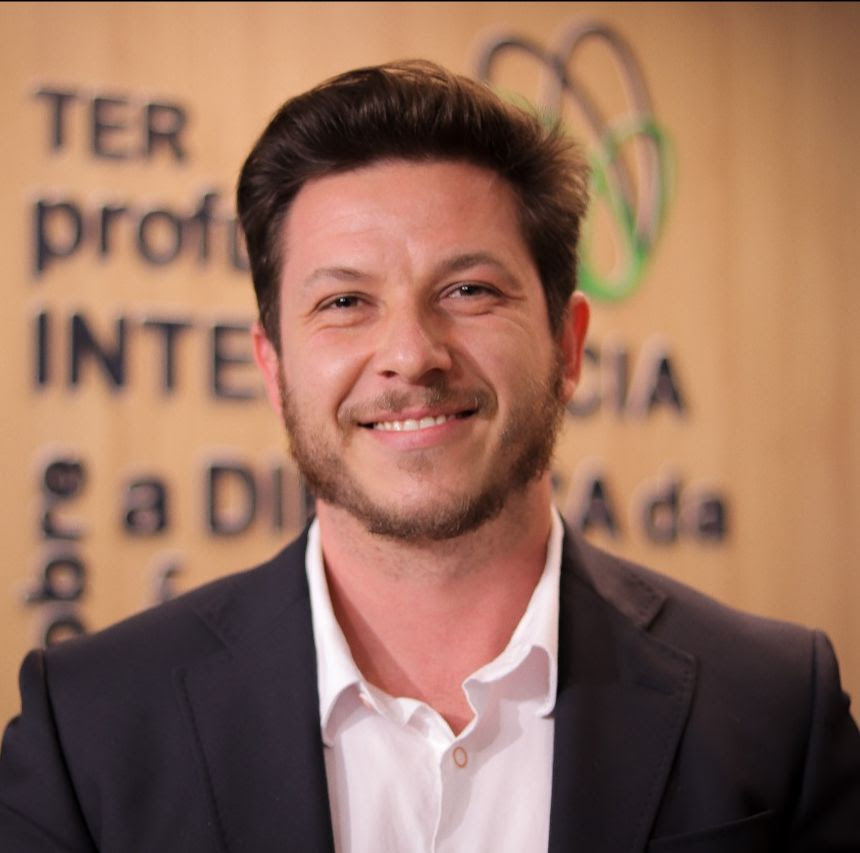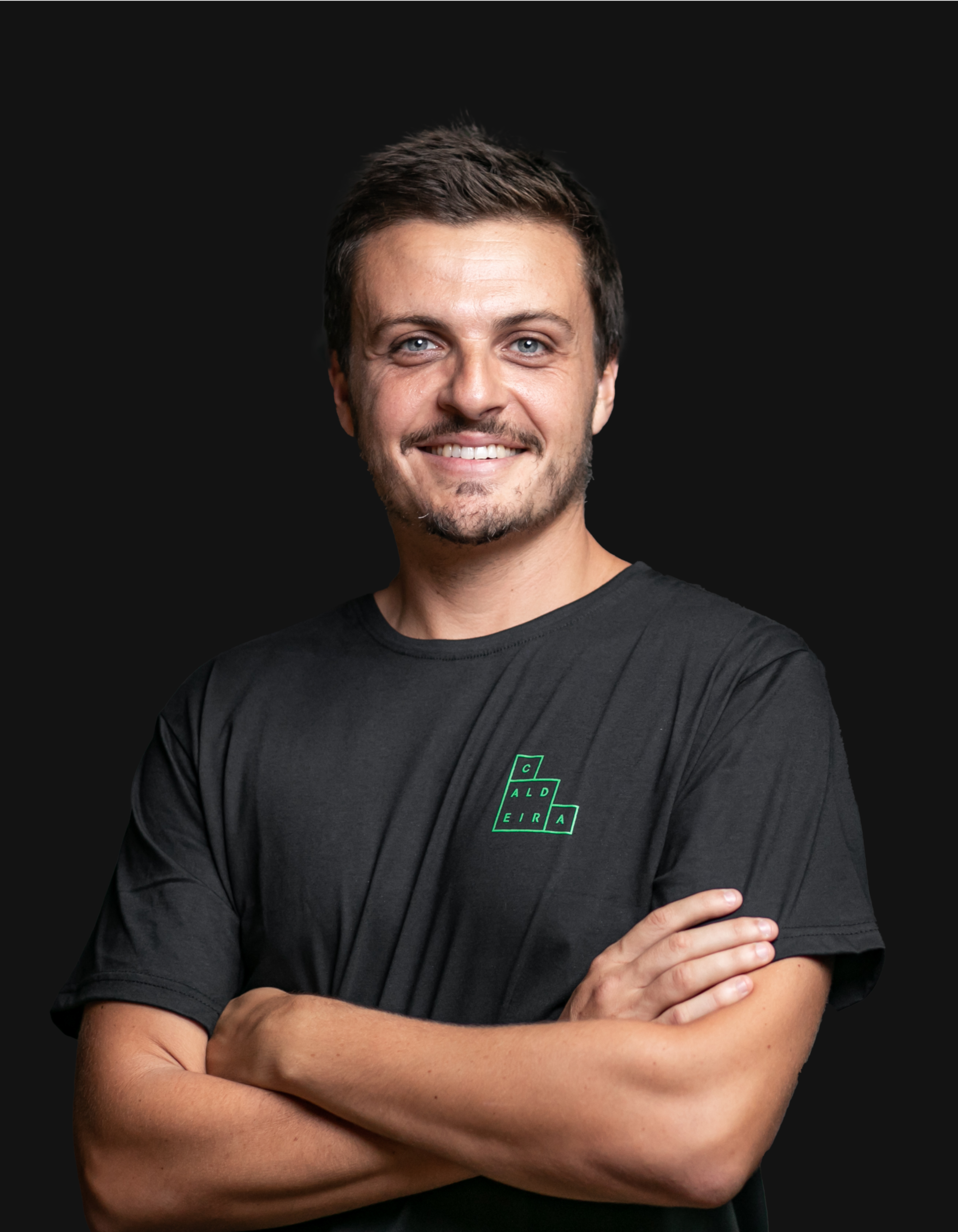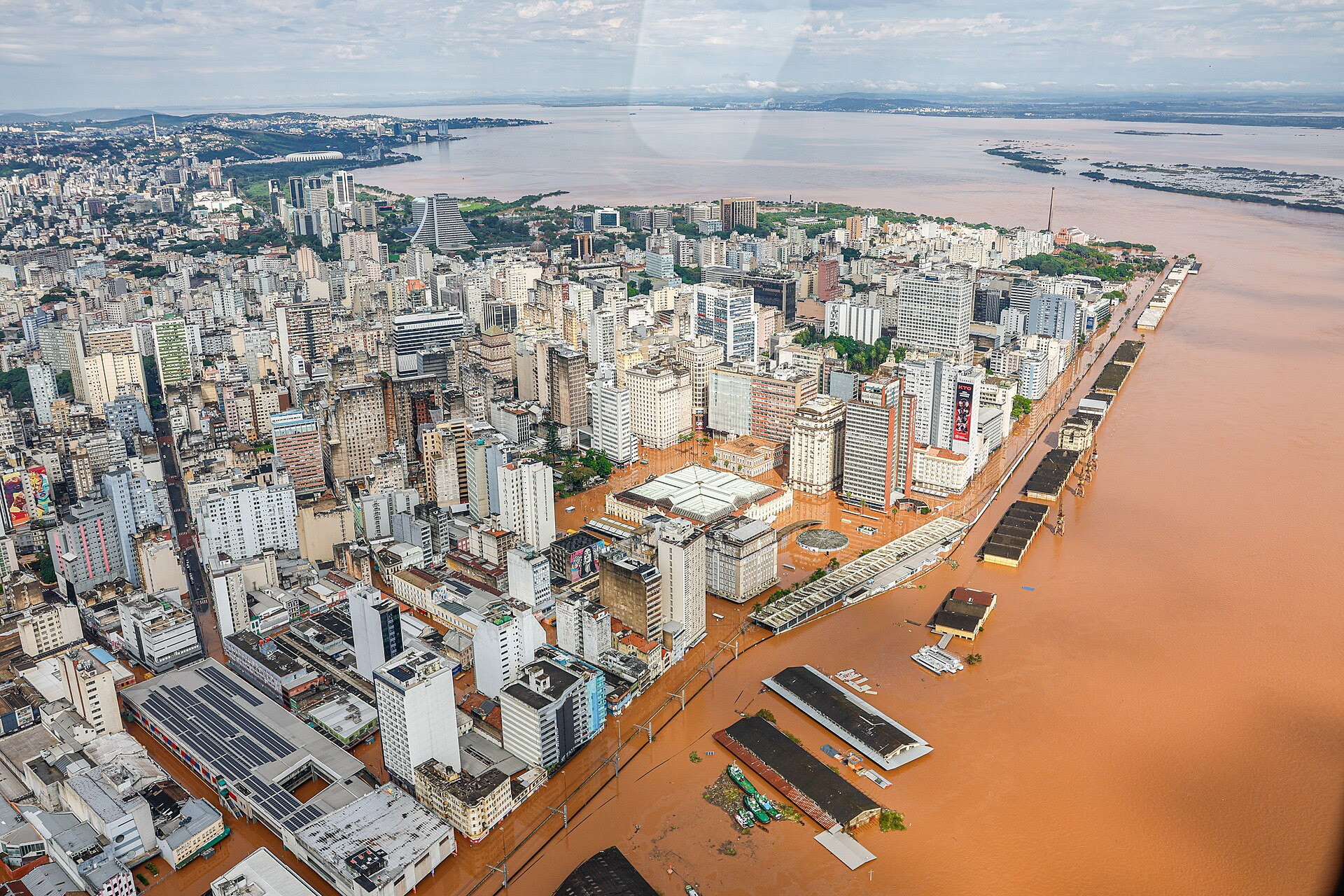The image is heartbreaking. Devastating indeed. Water everywhere, sunken houses, buildings damaged, often up to the third floor, streets so flooded that is impossible to dissociate what is the river from what is asphalt and a feeling of powerlessness that devastates not only those who lived the tragedy of the rains in the State of Rio Grande do Sul, but also those who care about others. These are scenes that, unfortunately, were not produced in any Hollywood film studio, in Los Angeles, in the United States. And, they don’t belong to the blockbuster movie “The Day After Tomorrow.” Unfortunately, it is just nature expressing its discontent with man’s actions towards it. In other words, climate change is not a breakfast cereal commercial. It’s not a joke or interpretation. It is not something you can let go of, pretend it does not exist or that you are free from it. It is real, tangible and materializable. No country on Planet Earth can stand up and say it is safe. Climate change does not respect geographic borders, ignores political ideology, and not even care about whether the economic model is Keynesian or Marxist. Climate change has a thousand faces. And, it works with man’s five senses: smell, vision, hearing, taste, and touch. Not always clearly, we must say. For example, at times, it is invisible to the eye, but it crystallizes into intense heat, so intense that it is capable of causing heatstroke, drying out palate in the best desert climate style, and leading people to death as in the American Midwest or in Greece this 2024 summer. When dealing with the sense of smell, it emerges in a smell of rain on the earth – wet soil -, but soon dissipates given the absurd amount of water falling on the ground. Climate change also sharpens hearing from torrential storms or the freezing winds of a blizzard, causing fear. And it is tactile, since all previous perceptions are very palpable. But, how to react to these natural disasters? The answer is: information. Not just any information. Not the one searched on Google – sorry, Google! Here we talk about processed information, which emerges from data, images, insights, field research, among others. Those who know this recipe well are the people at Fractal Engenharia e Sistemas. Through a series of public databases, which include information from radar, satellites, meteorological and atmospheric sensors, in addition to that collected on the work site, the company is able to assemble a platform capable of generating a prediction of water behavior. |
|
“With the information, we create operational intelligence that shows how rain will fall over time, explaining how it can generate humidity or even occupation above ground, and how it will be drained. It is a technological solution for any meteorologist or hydrologist to use, replacing all the manual work of gathering information”, explains Henrique Rocha, CEO of Fractal, founded by Henrique in 2011 – and invested in by KPTL since 2019. |
|
|  | Henrique Rocha, Fractal’s CEO. |
|
|
|
|
|
|
|
|
|
|
|
It’s the type of analysis that almost every industry needs: from agriculture and livestock to energy generation through hydroelectric plants, including a handful of industries. Because the hydrological cycle considerably affects the Brazilian economy. As an environmental engineer specializing in dams’ safety, he dedicated himself to academia for a while. But he decided to undertake because he saw that the information produced at the university was not reaching the population. “The system works so that technicians and Civil Defense already have all the information on a map, with alarms and warnings defined to mobilize evacuations and security actions, for example,” says Rocha. Fractal‘s CEO speaks from experience. Its system was extremely important in the floods of October 2023, in the State of Santa Catarina. Despite having more than 130 municipalities affected, the state suffered minor losses and unfortunately two deaths, because the Civil Defense managed to mobilize in time based on the information provided by Fractal. |
|
 |
Monitoring room of the Civil Defense of the State of Santa Catarina. |
|
It is also worth remembering that the company can help not only in flood situations, but also when there is a water shortage. As Brazilians currently watch dumbfounded in the Pantanal of Mato Grosso do Sul. The lack of this input goes without saying. But let’s say it… It greatly affects numerous economic activities such as mining, a sector that is among the company’s main customers. Now, what if the absence of water is of the drinkable one? The one ready to drink. Well, that’s a different conversation. More complex. In flood situations, such as that in Rio Grande do Sul, the size of the problem was clear. Firstly, because one of the first systems to be affected is precisely sanitation. Then, because it collapses. And then, the demand arises immediately, solved largely by the population’s donatory sense. But today, in simple terms, given the size of the damage in the state of Rio Grande do Sul, a word appears on the horizon: reconstruction. But what will be the model? Can the previous one be used? Or is it possible to reimagine better systems? Augen Engenharia believes so. That it is possible to imagine something better. |
|
 |
In the center, Fabrício Santana, Augen’s CEO. |
|
Headquartered in the State of Rio Grande do Sul, the company can help a lot in this process. Operating in the sanitation sector, the company owns a modular technology that can not only make real-time measurements of the quality of water being offered in public networks, but also automate many tasks in this sector. In a combination of software, hardware, and connectivity, the company’s products are installed in artesian wells and water treatment plants, being able to collect information about the level of acidity (pH), temperature, turbidity, fluidity, and other aspects of this precious liquid. And, more than that: the system can also correctly dose inputs such as chlorine, fluorine or coagulants important to treat water. “Our solutions bring autonomous processes and reduction of operating costs. Instead of the operator carrying gallons of chemical product, the system operator now has a more technical look on managing the process”, explains Fabrício Santana, CEO of Augen. According to him, the implementation of the company’s products brings up to 30% savings in the unit cost of water produced. More than just savings, the system is quick and easy to implement: in an emergency situation, it can start treating water in an artesian well within 24 hours of its opening. And as if that wasn’t enough, the system also comes equipped with its own Artificial Intelligence (AI), Iris, which talks to operators and assists with any problems. Of course, water is just one of the first steps in rebuilding life. A basic need in face of a myriad of desires of human beings, as Maslow and his pyramid well taught. As the chorus goes: the show must always go on – or as Milton Nascimento sings, “mesmo com a roupa encharcada e a alma repleta de chão, todo artista tem de ir aonde o povo está” (even with wet clothes and a soul full of dirt, every artist has to go where the people are). And that’s where the work of Prosas comes in place, which was created to assist in the selection, monitoring and accountability of projects selected in notices of incentive laws – such as the Rouanet Law, the Sports Incentive Law or the funds available in funds aimed at to the elderly or children and adolescents. With its own platform, Prosas helps departments and companies that have their own notices to choose the work that deserves support, gathering all the necessary documentation. In addition to public notices, the startup also helps companies that want to privately choose their support with a base of incentivized projects (BIP), previously approved by public bodies to raise funds. |
|
 |
Project bank curated by Prosas. |
|
Normally, Prosas charges companies that wish to do this type of fundraising. To help Rio Grande do Sul, however, the company has publicly opened the base of projects that have already received approval to raise funds via incentive laws. |
|
For those who want to access, just visit the link and navigate through more than 200 initiatives. According to Thiago Alvim, CEO of the startup, most companies tend to allocate their funds only at the end of the year, thinking about Income Tax deductions. However, the faster the money arrives, the sooner the work of reconstruction and support for those in need begins. |
|
|  | Thiago Alvim, Prosas’s CEO. |
|
|
|
|
|
|
|
|
|
|
|
Rebuilding and reimagining the future of one of the most important, creative and innovative states in Brazil will take time. But we can all do our part for a better future. Because the expression “will it rain today?” has never been so important or current. And in that “rain” there is a lot of things, including the feeling of love that spread across Brazil towards the State of Rio Grande do Sul. In this case, it wasn’t a little rain, it was a storm of love, a storm of good. |
|
“We may encounter many defeats but we must not be defeated.” Maya Angelou |
|
 |
|
 | Pedro Freitas ValérioExecutive Director of Instituto Caldeira |
|
|  | Leandro PompermaierRelationship and New Business Manager at the Scientific and Technological Park of PUC-RS (Tecnopuc) |
|
|
|
|
|
|
|
|
|
|
|
1) The climate disaster in RS took many people by surprise and caused impacts that will take some time to be understood. How is technology helping to understand the scenario and also in providing answers for people, companies and entities subsistence in the short term? |
|
Pedro Freitas Valério: Without a doubt, the disaster took on a proportion far beyond any expectations, whether in scope, duration, and obviously in the understanding of its unfolding. As entrepreneurial citizens of Rio Grande do Sul, we will have this wound open for a long time. The exercise we have been doing in the short term, in terms of responses, happens under the perspective of technology. At Caldeira itself, a series of initiatives are being worked on around IoT and other perspectives, to address the ability to anticipate and predict events of this nature. But the most important exercise is to create convergences, expanding the collaboration of projects, initiatives and players involved in the responses. We are fine-tuning and working with both the private sector and public authorities to mitigate and address these risks, of how Caldeira and the Fourth District can come out better from this challenge we are facing. |
|
Leandro Pompermaier: Since the beginning of the disaster in Rio Grande do Sul, there has been a movement towards the use of technology, especially within innovation environments, such as Tecnopuc, where entrepreneurs began to gather and make a movement to map shelters and needs of families in the areas affected, whether in Porto Alegre or in the State as a whole. After the situation began to “stabilize”, after the flood was over in Porto Alegre and the river level got down in the interior of the State, the data and applications developed were sent to the public authorities, so that they could be used assertively in investment decisions in the recovery of the State as a whole. In this case, technology was crucial from the beginning to understand the magnitude of the damage. Now, it is being widely used to map out where quick actions are needed to return the economy to possible normality. It will be hard and time-consuming, but understanding who is in need, how much they need, and how they need, will be essential now. Technology will help governments, civil society, and even volunteers as a whole so that we can direct forces at the right time to the right people. |
|
2) More than just talking about the reconstruction of Rio Grande do Sul, it is important to reimagine a new RS based on what happened. How can innovation help in this medium-long term process? |
|
Pedro Freitas Valério: Reconstruction is a word we use very little. We talk a lot about regeneration, which passes precisely from the perspective of, as State and city, emerging better from the crisis, using an anti-fragile mentality – that, after a high-intensity stressor like the one we experienced, does so to improve and grow in the medium-long term. Within the Caldeira community, we see a financial impact of around BRL 500 million among the institute’s companies, but we also have a number of companies that were not impacted. When talking about resilience strategy, a careful look at our economic matrix is also very strategic. Companies linked to technology, cloud services, AI, and other fronts, have somehow survived well this climate challenge precisely because their businesses are not anchored in premises that water can impact. This is a lens: looking over this economic matrix and which sectors we could target for the future, highlighting the competitiveness of our State. Furthermore, we also talk about the development of an innovation district, with various technologies being worked on, which relate to initiatives such as sensors, connectivity technology, and video monitoring. We are studying engineering structures such as containment squares, the review of galleries, but also the use of new technologies to mitigate future events. |
|
Leandro Pompermaier: Reimagining a new Rio Grande do Sul requires an integrated and innovative approach. Innovation can significantly contribute on several fronts. For example, in civil construction, new technologies and sustainable materials can be adopted to make infrastructure more resilient to extreme weather events. Furthermore, the development of smart cities, with quick monitoring and response systems, can help mitigate the impacts of future disasters. In the agricultural field, precision agriculture techniques and the use of artificial intelligence can increase the resilience of crops to climate variations. Education and environmental awareness are also fundamental pillars for building a more prepared and resilient society. Among other innovation and technological actions that can help governments in carrying out actions to rebuild RS. |
|
3) Many cities in the interior of the State did not suffer from flooding for the first time in a recent period of time. Furthermore, it is important to highlight that the climate change scenario only tends to intensify in the near future. How can innovation and intelligence help develop solutions to prevent new tragedies from recurring? |
|
Pedro Freitas Valério: There are many cases around the world of places that have faced similar challenges, making use of technology and, naturally, thinking about urban planning for the future. Amsterdam (in the Netherlands), for example, has been underwater for 150 years and has faced enormous challenges, but always with the use of technologies and tools that contribute to mitigating these challenges. What we somehow believe in Caldeira is that bringing these examples and players from these cities, to actively participate in the constructions for Rio Grande do Sul, and the cities of Rio Grande do Sul, is an exercise in governance. It is an exercise in the capacity for collaboration and convergence involving the private sector and public authorities in all spheres. It is also an exercise in citizenship from the perspective of civil society, what ambition we have to build for the future. Naturally, we have to establish the differences between what constitutes a climate event of the nature and size of what happened in May and the resolution of problems that hinder the creation of value in important areas of Rio Grande do Sul. The exercise here is one of governance, so that we can propose, monitor, follow-up, and develop these projects as a priority. |
|
Leandro Pompermaier: To avoid future tragedies, innovation and intelligence are essential. The implementation of advanced early warning systems, using sensors and communication networks, can provide faster and more accurate warnings, allowing for safe and timely evacuation. Artificial intelligence-based solutions can analyze large volumes of data to predict weather patterns and identify risk areas. Green infrastructure, such as parks and controlled flooding areas, can be designed to absorb excess rainwater, reducing the impact of flooding. Furthermore, it is essential to promote collaboration between government, the private sector and the scientific community to develop effective public policies and technological solutions adapted to local needs. |
|
|









